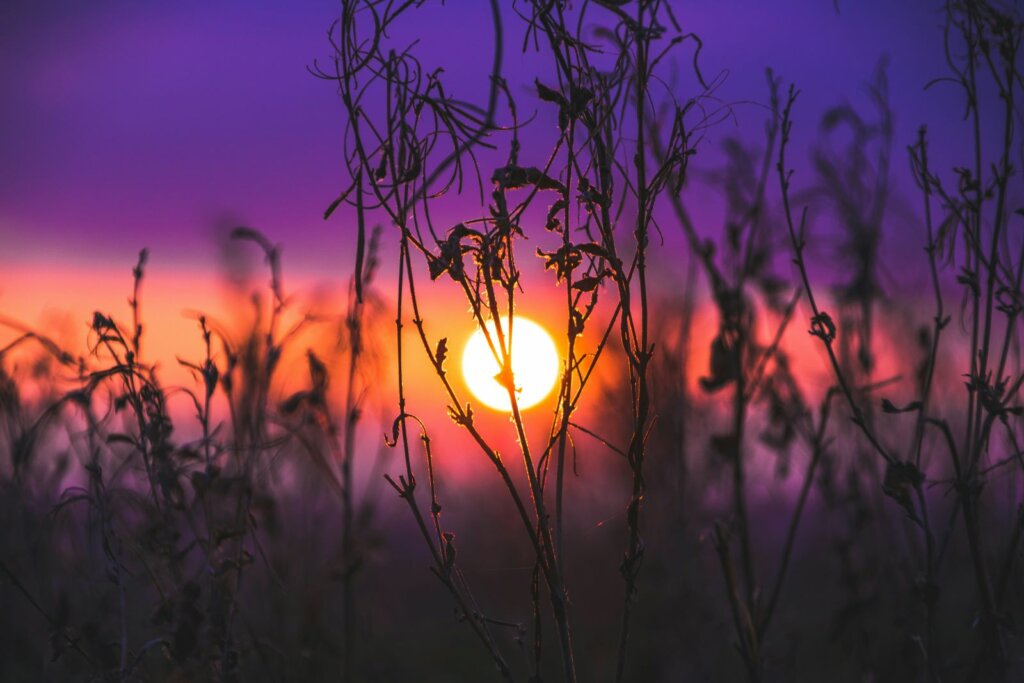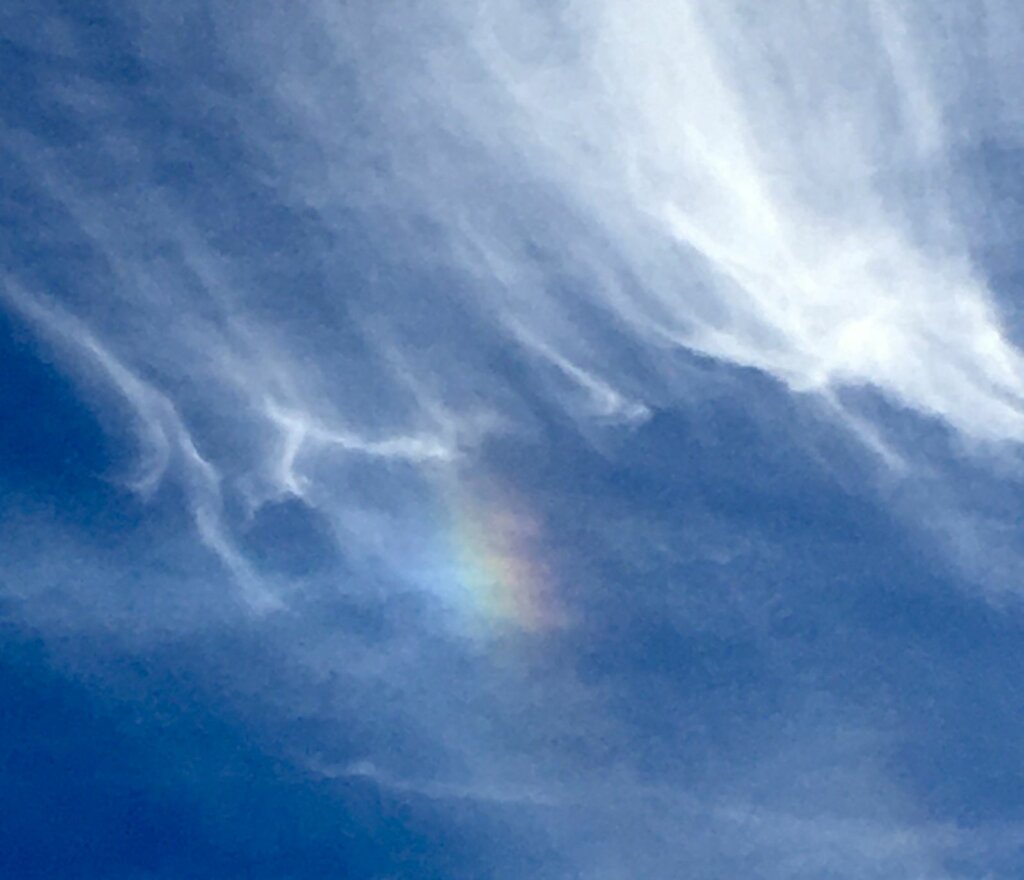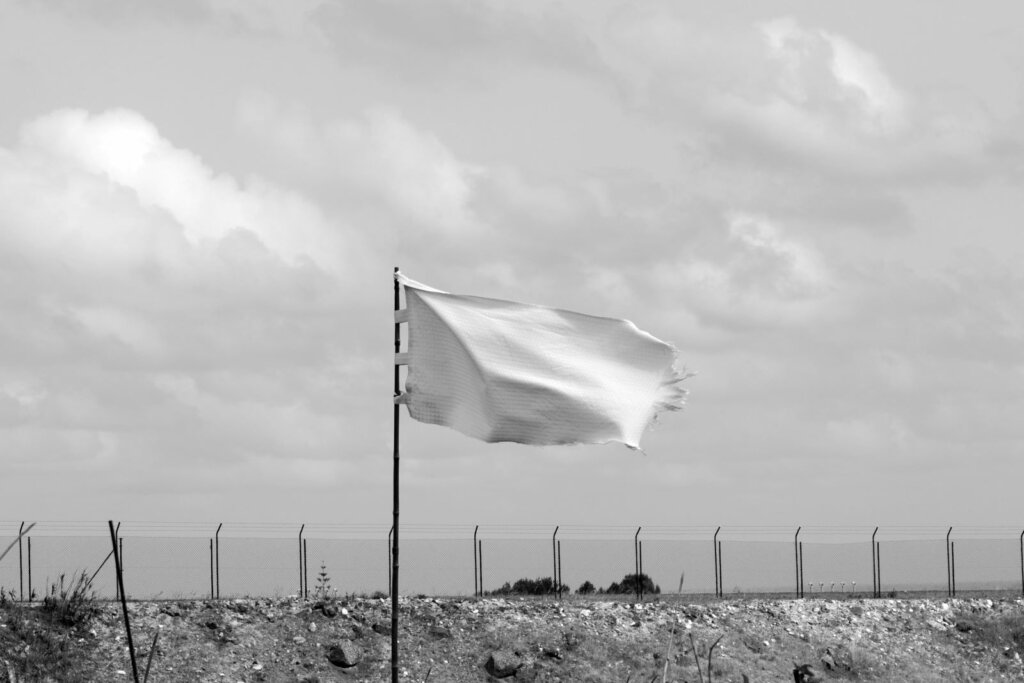I have some notes for the cosmic powers that be. Is there a way to lodge complaints? A manager I can speak to? No? Who designed this system?!? At times like these, I understand why people question the existence of God/Higher Power/Source, etc. because if there is a God, why would It allow all these awful things to happen?
I think about this a lot both in terms of my personal life and in the broader world. Being the human I am, I want the world to revolve around me. I want things to go how I think they should go and struggle when they don’t. However, I have enough humility to recognize my perspective is limited. I’m not omniscient, omnipresent, or omnipotent but I do believe there is an entity that has all those traits.
If that’s so, then how can I account for all the atrocities in the world? Wouldn’t an all-powerful loving entity want to stop things like war? First off, yes, which is why every spiritual teacher ever preaches love, acceptance, and respect. The sticky wicket is that humans have free will. According to my spiritual philosophy, we are all on a spiritual journey. Not just humans but plants and animals too. Plants and animals are moving instinctually toward Cosmic Consciousness but humans have the blessing? the curse? of being able to choose whether they want to move closer or further away. And sometimes people choose things that I wouldn’t.
But an omnipotent entity can make anything happen because that’s what omnipotent means so why wouldn’t a loving Higher Power intervene in these instances? Why wouldn’t a loving Higher Power say, “I’m putting a stop to all this conflict”? The answer I keep coming to VERY begrudgingly is in this spiritual journey, Cosmic Consciousness is playing the long game. It’s not only about what happens today, tomorrow, or 50 years from now. It’s about what happens 500 years from now, 5,000 years from now. What will best serve humanity’s evolution? What will help us evolve as a species?
I hate this answer, truly I do, but sometimes what helps us grow the most is strife. I used this quote just the other week but it’s again applicable: “Whenever there is clash or conflict within any structure, whether subtle or crude, it acquires subtlety. This applies to both psychic clash and physical clash. The more subtle the crude mind becomes as a result of internal clash, the greater its spiritual awakening.”
In other words, I think society is undergoing a spiritual awakening. Do I love the mechanism for it? Not in the least, but I’m choosing to believe this is part of a larger plan that I’m not privy to. That all this psychic and physical clash is fertilizer for our evolution, leading us somewhere we want to go.
To quote my spiritual teacher again, “All human beings want light. One individual human is more luminous and more throbbing than that universal darkness. So human beings should always be optimistic. The cimmerian darkness cannot retard your progress, cannot cover the light of the human heart. The spirit of your heart must move on and on against obstacles. Kick away your obstacles like pebbles from your feet – you are stronger than your obstacles.”
I firmly believe the obstacle we are kicking away from our feet is narrow-mindedness and anything that seeks to strip us of our humanity. Whatever reduces people to segmented groups, whatever urges binary ways of thinking and acting, whatever encourages us to cover the light of our hearts is what we’re working to get rid of day by day, little by little until eventually, more of us will be spiritually awake than asleep.
I dream of a world where we take heart in trying times because we understand there’s something bigger than us happening. A world where we realize we are each playing a part in a Cosmic drama. A world where we recognize that growth happens in response to clash. A world where we remember society as a whole is experiencing a spiritual awakening.
Another world is not only possible, it’s probable.
I always find Diipavali or Diwali to be an interesting holiday. The timing changes because it’s attached to the new moon in the month of Karttik, which is mid-October to mid-November. It’s dark, there’s no illumination. Symbolically, the day before Diipavali represents a time when it seems like light can’t win, won’t win. That evil will triumph and maintain its grip on society.
And then the holiday arrives. Diipavali signals to us that light is victorious, that good does triumph over evil and that knowledge eventually prevails. According to my spiritual teacher, the origins of Diwali are a war battle. A king attacked Lord Krsna’s capital city, Dwaraka, and the warrior Satyabhámá, a woman, I might add, launched a fierce counterattack against the invading forces. The army was defeated and the whole city was joyful. Residents celebrated by lighting fourteen candles and on the following evening worshipped Satyabhámá with festivities and elaborate lights.
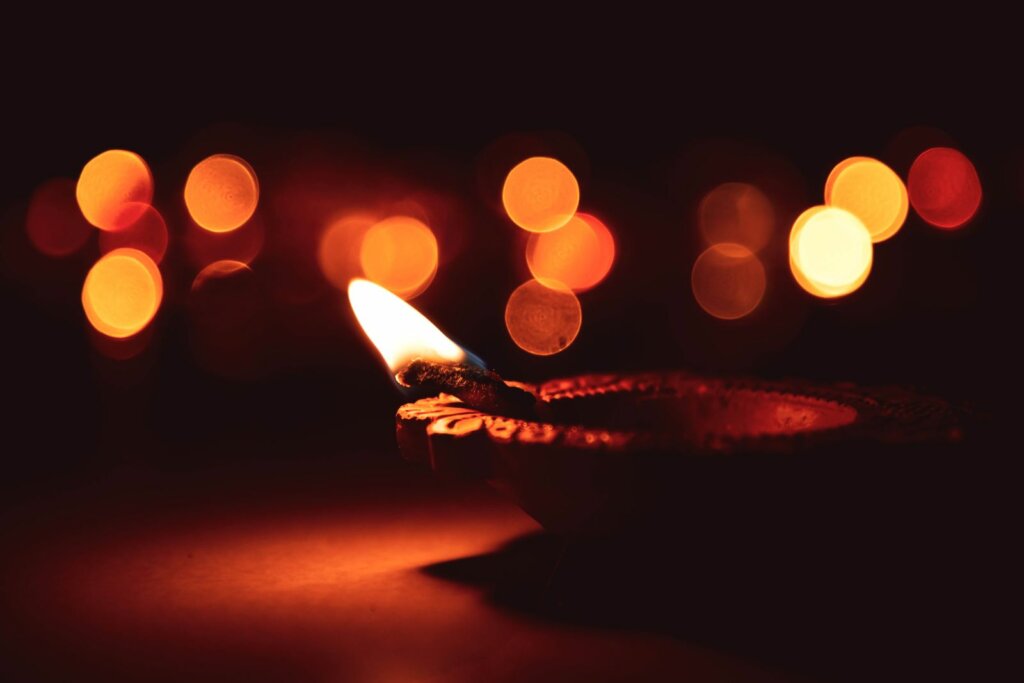
We can be the light. Photo by wilson mathew on Unsplash
That’s exactly what diipavali means. The word comes from dīpa, which means lamp or light, and āvali, which means a row, a range, a continuous line, a series. So we’re celebrating a row of lamps both literally and metaphorically. You might notice Diipavali is similar to Hanukkah, another holiday that involves lights in a row. And just like modern Jews celebrating Hanukkah, Diwali is no longer about a war battle. It represents a symbolic battle where we remember the flame of one lamp lights up countless others both literally and metaphorically.
I’ve had moments recently where I want to burrow under the covers and completely withdraw from the world. I don’t enjoy what’s happening nor the vitriol it’s inspiring. Everything seems so dark and then I remember a quote from Rumi who said, “If everything around seems dark, look again, you may be the light.”
I think that’s what Diipavali reminds us. It’s not only that in the end good will triumph, it’s also the recognition we have a part to play in that victory. When we spread our light, our goodness, we light up other people. And together, we create a row of lights such that darkness retreats. We may be few in number but that doesn’t mean we’re any less powerful.
To paraphrase my spiritual teacher, the strength of five good people is more than the united strength of a hundred immoral people. It also echoes the famous Margaret Mead quote: “Never doubt that a small group of thoughtful, committed citizens can change the world; indeed, it’s the only thing that ever has.”
A lot of little lights can conquer darkness. And this is something we must do over and over again. Unlike a single war battle, Diipavali encourages us to hold onto light, to keep shining, and to remember that one by one by one our actions add up to something bright.
I dream of a world where we have faith that good always wins in the end. A world where we remember light drives out darkness. A world where we understand that we all have a part to play in making the world a better place. A world where we recognize that our light lights up others. A world where we hold onto that light and create a better world for everyone.
Another world is not only possible, it’s probable.
When I was 7, there was a boy in my first-grade class that I didn’t like. I don’t remember why, his name, face, or any identifying features, but what’s seared into my brain is how I treated him on Valentine’s Day. It’s standard practice to give all the kids in your class a Valentine and for this boy, I decided to let him know how I really felt about him. I took out a piece of notebook paper and wrote, “I hate you, I hate you, I hate you, I hate you, I hate you,” until I ran out of space. But that didn’t feel like enough so I asked my brother, “What’s a word that means over and over again?” and he responded, “Et cetera,” which of course I didn’t know how to spell.
So at the end of a page filled with “I hate yous” I tacked on an “etc.” I tucked the paper into an envelope and signed my name so he would know it was from me. The next day I watched his face crumple reading my “Valentine.” He showed the piece of paper to our teacher and she said, “I’m sure she didn’t mean it.” I remember feeling mixed emotions because I did mean it. I did hate him but at the same time, I didn’t expect him to respond the way he did. In my mind, he was a monster, incapable of emotions, but seeing how hurt he was gut-punched me.
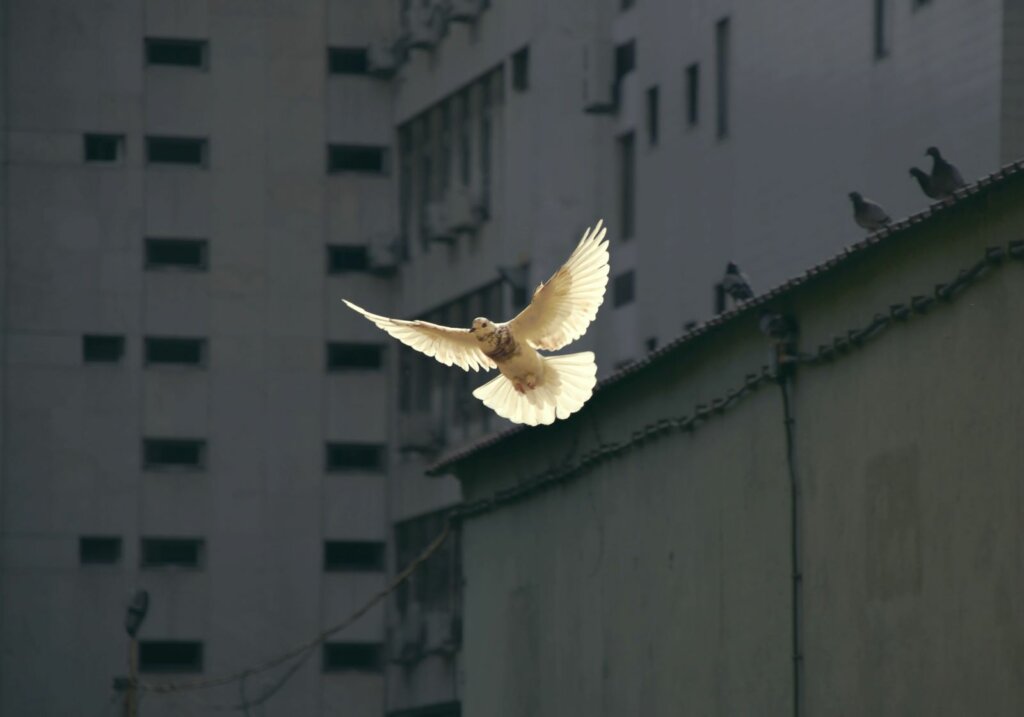
Peace is possible if we do the internal work. Photo by Sunguk Kim on Unsplash
As a 7-year-old, I wasn’t thinking about how this little boy would feel. All that mattered was expressing how I felt because I was the wronged party. He was mean to me. What I did to this little boy is what some people are doing now – they are only thinking about how they feel, not the impact their words will have on other people. What I also did to this boy is I dehumanized him. As a 7-year-old, there weren’t dangerous consequences to my perception but that’s not true for adults.
When you perceive a human being as an animal or a monster that must be destroyed, you will put them in a cage. You will bomb the crap out of their homeland. You will decapitate them and their family. You will do whatever it takes to show them how you feel without considering how they feel.
It’s worth mentioning that balance is important. There is such a thing as considering someone else’s feelings too much and that’s known as codependence. By and large though, we’re suffering from a lack of empathy, not too much of it. As a highly sensitive person, I’ve been crying about the ugliness in the world. It feels not great to read people are saying, “Gas the Jews!” and “Wipe Gaza off the face of the Earth!” Have we forgotten, just like I did, that words hurt? They don’t leave a visible mark like bruises do but can ring in your ears long after a physical injury has healed.
What do we do about this? How can we remember each other’s humanity when it feels so very challenging? There’s a Nonviolent Communication (NVC) exercise called simply “the exercise” that is so powerful for this. It’s a way to shift your inner landscape closer to connection, compassion, and peace. Any movement in that direction is a win so don’t worry if you’re not suddenly filled with peace after doing it.
I know it’s easy to let anger fuel us, I’m guilty of that myself, but if you have even a modicum of a desire to create a peaceful planet that goes beyond the limits of small social identities, I encourage you to do the exercise I linked to. Not only that, share it with your friends. As humans, we don’t have to give in to our baser instincts. There is another way. We can move toward peace but it requires more than a ceasefire. It requires us to view each other differently.
I dream of a world where we recognize how dangerous it is to only think about how we feel and not how others feel. A world where we don’t let anger and hatred fuel us. A world where we do the work to see others as human beings no matter how hard it is. A world where we all work together to move toward peace.
Another world is not only possible, it’s probable.
No one would describe me as a clumsy person. In fact, it’s just the opposite. I took ballet for years and my reflexes are quick but in the last week, I’m a veritable butterfingers. Objects are literally jumping from my hands. I was in a store the other day and my credit card flew across the counter six feet away and got wedged between a table and the wall. I opened a package and the contents skittered across my kitchen floor.
More energy is coursing through my system, my mind and body are going in a million different directions, and I can’t seem to sit still. Again, that’s highly unusual for me! I generally don’t have problems with focus but these days my insides (and outsides, honestly) feel chaotic, messy, and discombobulated. Normally I’d try to tamp all this down and rein the energy back in but I keep thinking about what my chiropractor tells me about this phase of my healing: “You’re reorganizing.” I’m like a tornado picking up objects and hurtling them to another location.
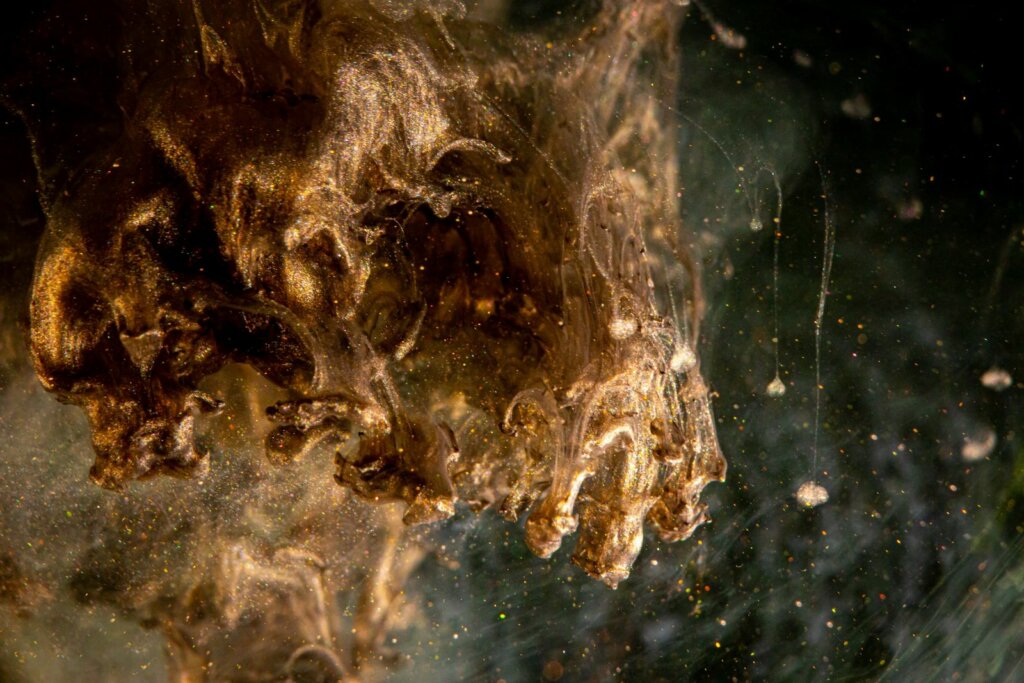
What I like about this photo is it reminds me of the Pillars of Creation. Photo by Angel Luciano on Unsplash
The question worth asking is, “What will be created from all this disarray?” There’s a quote on my fridge from Friedrich Nietzsche that says, “One must still have chaos in oneself to be able to give birth to a dancing star.” So often chaos is painted as scary, undesirable, something to avoid at all costs but as Reggie Ray, the spiritual director of the Dharma Ocean, said in a dharma talk, “Chaos is the source of life.”
Oooooh boy. Chaos is the source of life? It’s not order and structure? Sadly, no. As we are all aware, we are made up of stardust, to paraphrase Carl Sagan. To quote an article on the subject:
“The carbon, nitrogen, and oxygen atoms in our bodies, as well as atoms of all other heavy elements, were created in previous generations of stars over 4.5 billion years ago. Because humans and every other animal as well as most of the matter on Earth contain these elements, we are literally made of star stuff.”
What that means is we’re the product of chaos. All the debris from supernovas exploding and comets colliding led to us. It also led to some of the things we consider the most precious. Ultra-high precision analyses of some of the oldest rock samples on Earth by researchers at the University of Bristol provide clear evidence that “the planet’s accessible reserves of precious metals are the result of a bombardment of meteorites more than 200 million years after Earth was formed.” Gold? Platinum? Both here because of meteors.
In my spiritual tradition, we use the word “clash” a lot, which describes the meeting of opposing forces. If you think about it, that’s basically what chaos is. One force is striving for order, the familiar, the steady whereas another is calling for disorder, the new, the unsteady. My spiritual teacher says, “Whenever there is clash or conflict within any structure, whether subtle or crude, it acquires subtlety. This applies to both psychic clash and physical clash. The more subtle the crude mind becomes as a result of internal clash, the greater its spiritual awakening.”
What’s happening to me, I think, is another spiritual awakening where I’m becoming more myself but to create that new me requires some chaos.
I dream of a world where we understand to create something new, including ourselves, requires chaos sometimes. A world where we recognize there may be gold waiting for us at the end of an unstable period. A world where we realize internal clash and conflict is an asset, spurring spiritual growth.
Another world is not only possible, it’s probable.
I had an experience a few days ago that I keep thinking about. If you follow me on Instagram (@krsnasfav), you already heard this story, but I want to share it here too. As I walked to the chiropractor, I felt dismal, irritated, and hopeless. Everything surrounding Israel and Palestine weighed me down, I didn’t hear back from people I expected to hear back from, and things were just not working how I wanted them to.
I don’t know why I had this urge, but I looked up at the sky and saw a rainbow reflected in a cloud. I took a picture and glanced around, wondering if anyone else also saw this rainbow. Even though my phone was pointed upward, and my head tilted back, the other passersby didn’t notice. They didn’t look up. After 10 seconds, the rainbow disappeared.
It felt like a sign specifically for me, but because I can’t keep these things to myself, it feels like a sign for you too because you’re a part of my life. After seeing that rainbow, my whole mood shifted. I was reminded good things are possible, that life has a way of working out, and maybe I didn’t need to be quite so down in the dumps.
I would say a feeling of hope returned but apparently hope is not what I think it is. Research defines hope as a “positive motivational state that is based on an interactively derived sense of successful (a) agency (goal-directed energy), and (b) pathways (planning to meet goals).” Optimism on the other hand is the belief that somehow – either through luck, others’ actions, or your own actions – that the future will be successful and fulfilling.
While technically I felt optimistic, that word doesn’t sit right with me because seeing a random rainbow in a cloud, which is a rare occurrence, and on a sunny day, is a message of hope if I’ve ever heard of one. That rainbow was a harbinger of good things to come because wouldn’t you know it? My week turned around. The checks I was waiting on came in the mail, people finally got back to me, and I heard more care and nuance about the Israel-Palestine situation.
It only takes one moment but your whole mood can shift. I forget that. I get stuck on the “Life is like this and it will always feel like this,” setting. But when I see things like rainbows, hearts, or the word “love,” I’m reminded that there is a loving, benevolent force in the world and It’s doing Its best to draw me closer to It.
My spiritual teacher says, “When people advance, that which propels them from behind is known as momentum, and that which pulls them from in front is known as attraction. Momentum and attraction can be physical, psychic, and also spiritual.”
That’s what hope feels like to me, something pulling me from the front, urging me forward, whispering to me not to give up even when giving up feels like the most natural thing in the world. How do I regain hope when I feel hopeless? I think it’s by having things work out the way I want them to, but maybe really, it’s by seeing how the universe is pulling me toward it, calling me, and saying, “I’m here. You’re not alone. All is well.”
I dream of a world where we look for signs of hope around us. A world where we understand life can change in an instant for the better. A world where we remember we’re being pulled forward by a power greater than ourselves. A world where we regain a sense of hope when we’re hopeless.
Another world is not only possible, it’s probable.
I’ve shared this quote with three people this week so it seems like a good topic to blog about. My sponsor always tells me, “God is slow but He’s always on time. When it’s time He moves fast, so be ready.” My own life is moving at the pace of frozen molasses but things are happening quickly for those around me.
One friend went from looking for a new place to live to moving three weeks later. Another went from thinking of buying a house to putting in an offer in a week. A third queried literary agents for months and then after attending a conference was offered representation a few days later. For all these friends, the rumination and wheel-spinning lasted for months. The desire to move, to buy a house, to find a literary agent weighed on them, oftentimes feeling like a slog. And then, suddenly, boom. It happened. And it happened swiftly.
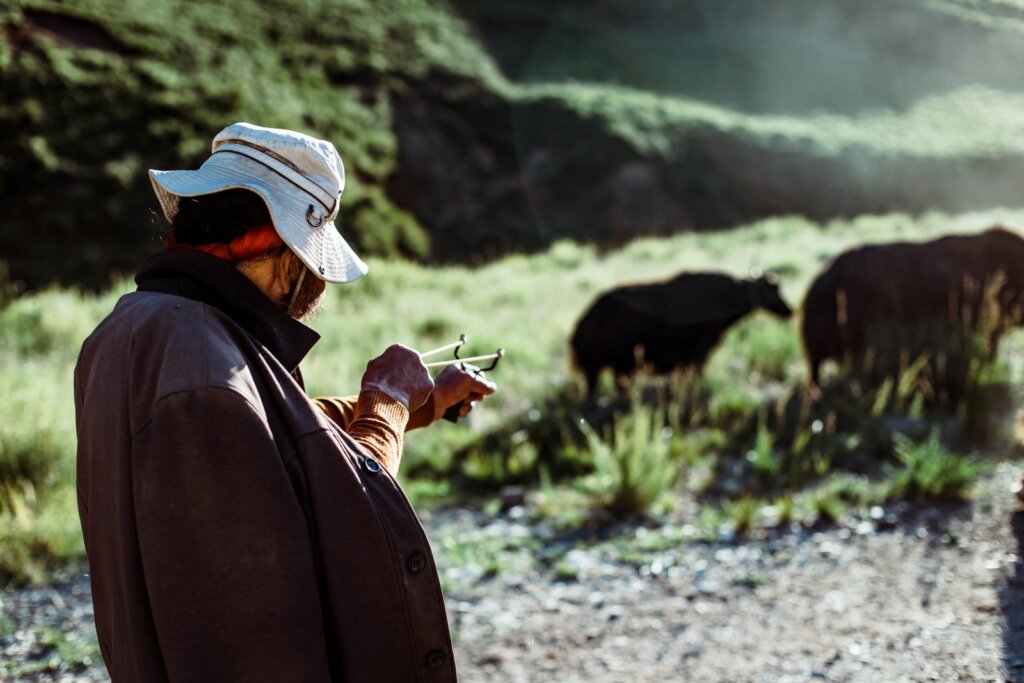
Sometimes we need to hold tight before moving forward. Photo by Gregory Hayes on Unsplash
This is how movement works, according to my spiritual teacher. It’s systaltic like a heartbeat, which means there’s a pause in between expansion and contraction. He says, “Now everything moves and that movement is of systaltic nature. Wherever there is any movement there is pulsation. Without pulsation there cannot be any movement. And this pulsation, that is movement through speed and pause, is an essential factor for each and every animate or inanimate object. Wherever there is existential factor there must be this pulsation. An entity acquires strength and stamina during the pause phase, and emanates vibration during the speed period. There cannot, however, be any absolute speed or absolute pause in the created world.”
You can think of movement like a slingshot – the more taut you pull a slingshot, the further the object you place within it will fly. It may seem like nothing is happening in your life but that’s only because the universe is gearing up to launch you forward. At least, that’s been my experience.
If you’ve known me for a long time you know I spent literally years looking for a place to live. I moved all over the Bay Area and ventured to Missouri, Seattle, and Washington, D.C. I prayed and prayed and prayed for a home but nothing was ever right. And then in February 2015, a friend posted on Facebook that her neighbor was moving out. He hadn’t even given his 30-day notice before I said, “I’m moving in.” After three years of angst, within a matter of weeks, I finally found a home.
It’s hard for me to remember those times of rapid movement because lately, it feels like all I’m doing is waiting, but as I witness my friends’ lives, I’m reminded things do happen quickly when all the ducks are in a row. When the Cosmic will and the individual will align, we are slingshotted forward. I don’t know when I’ll be in that position again but in the interim, I’m over here getting ready.
I dream of a world where we recognize movement may seem slow but that’s only because it’s not time yet. When the time is right, life zooms ahead so it’s important to be ready. A world where we understand movement is always systaltic and that means before any contraction or expansion there’s a pause. But eventually, we’ll be slingshotted forward.
Another world is not only possible, it’s probable.
It’s been a rough week. Not only have I still been sick but a client is late on payment and we’ve been going through a heatwave. All of this is a recipe for FUN TIMES. I’ve stewed in anger and resentment, I’ve cursed out God, told Him how much I hate Him. I haven’t felt serene, not even close. After I exhausted all of my options and had enough of simmering in anger, I stopped fighting.
One of my favorite ways to describe surrender is exactly that – it means to stop fighting. When you’ve exhausted all your options, when you’ve taken all the action steps you can, what else can you do? All that’s left is surrender and acceptance. I’m saying, “I’m no longer fighting reality and I’m accepting life on life’s terms.” Do I wish I wasn’t still sick? Do I wish my client would go ahead and pay me? Do I wish it wasn’t so hot I almost burned my hand on the doorknob? Yes. Of course. But what is wishing doing for me other than keeping the wheel of angst spinning?
Sometimes I fool myself into thinking I’m the master of my fate, I’m the captain of my soul, but then I have a week like this one and I remember, “Oh yeah. That’s wrong.” In my spiritual tradition we say, “[W]hatever happens in this Universe of ours is nothing but an expression of Cosmic desire or Cosmic will. Neither can there be any volcanic eruption nor can any blade of grass move without [God’s] order. . .Living beings cannot do anything without [God’s] support; that is, when a human desire and [God’s] desire coincide, then only does the human desire become fruitful, otherwise it is a sure failure.”
Sometimes I HATE this sentiment. What do you mean not even a blade of grass will move without God’s support?!? Are we all puppets on a string? Should I just throw in the towel? Lie around inert while I wait for an invisible puppet master to make something happen in my life?!? I hope you know the answer to that by now. But/and, there’s something to be said about accepting the existence of Cosmic will. There’s something about recognizing I’m not the general manager of the universe, as much as I wish I was.
When I say to myself, “OK God, OK,” I’m reminding myself who is really in charge. It’s a simple way of saying, “I may not like what’s happening right now but I accept the reality of my situation. I’ve done all I can to change, fix, and control it. Now I’m offering it to you.” Doing so brings me peace and I’d much rather have peace than what I experienced this past week. I want to move through life with ease and the only way I’ve found to do that is by saying, “OK God, OK.”
I dream of a world where we remember who is really in charge. A world where we understand the stars don’t control us, and neither does an invisible puppet master, but there is a force greater than ourselves at play. A world where we recognize fighting reality is a recipe for frustration. A world where we say, “OK God, OK.”
Another world is not only possible, it’s probable.
I didn’t know this was a saying splashed over Pinterest and Etsy until recently: “Everybody wants to change the world but no one wants to change the toilet paper roll.” Personally, I don’t mind changing the toilet paper roll but I understand the underlying message. When people talk about changing the world, they often think of something big and grand. They fail to realize the little things they do also change the world.
I’m guilty of this too. I have big dreams and pooh pooh the small things I do on a daily or weekly basis that make a difference in the lives of others, as if somehow that doesn’t count because I’m not touching millions. This week offered a perspective shift because I’m sick. Not just sort of sick but really sick. “Sleeping for 12 hours” sick. “Going through tissues more swiftly than I ever have in my life” sick. To top it off, I wasn’t sure if I had COVID because I ran out of tests and felt too terrible to walk to the drugstore to get more.
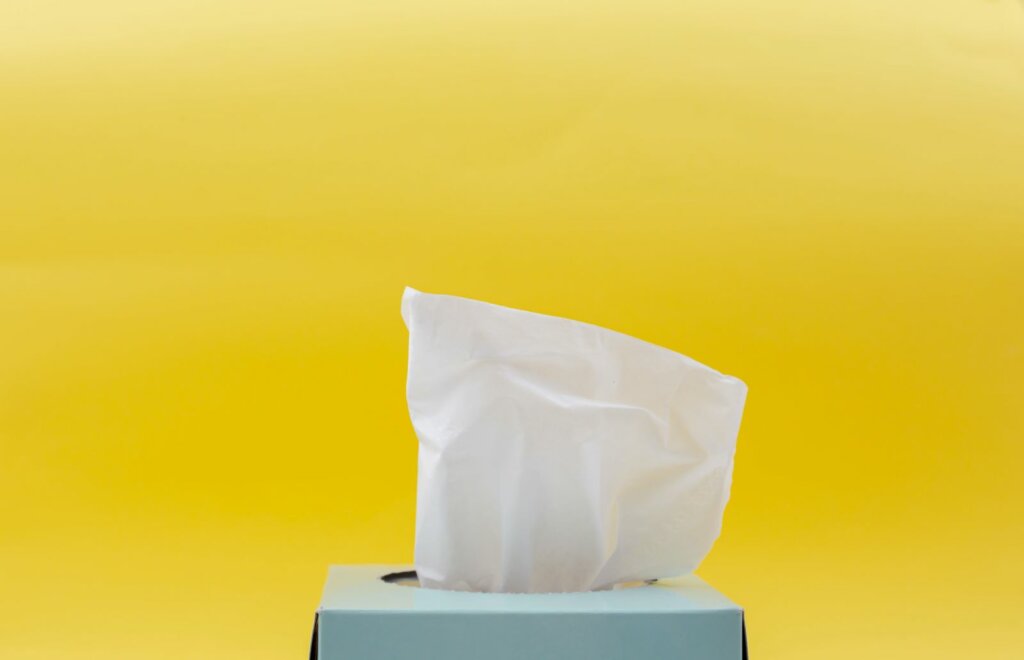
Sometimes it’s the little things that make all the difference. Photo by Diana Polekhina on Unsplash
While trying to psych myself up to run that errand, my dear friend and former neighbor called. I told them, “I wish you still lived next door because I’m sick and ran out of COVID tests and I would ask you for one if you still lived here.” My friend lives about a 10-minute drive away and said, “Oh, do you want me to drop some off for you?”
You GUYS. My heart melted. Not only did my friend leave two boxes of COVID tests on my doorstep but also a box of tissues because I am a veritable mucus factory over here. In the scheme of things, does dropping off supplies really matter to anyone other than me? No. But that’s the point, it mattered to me and changed my world. That’s what I often forget when it comes to making an impact.
I’ve written about it before, but all of this reminds me of the starfish story. If you’re unfamiliar, it goes like this: One day a man was walking along the beach littered with starfish, also called sea stars. He noticed a girl picking them up gently throwing them back into the ocean. Approaching the girl, he asked, “What are you doing?” She replied, “Throwing starfish back into the ocean. The surf is up and the tide is going out. If I don’t throw them back, they’ll die.”
The man said, “Don’t you realize there are miles and miles of beach and hundreds of starfish? You can’t make a difference!” After listening politely, the girl bent down, picked up another sea star and threw it back into the ocean. Smiling at the man she said, “I made a difference for that one.”
We change the world by making a difference for one person, one animal, one plant at a time. Yes, sometimes it’s more than that, but even one life changed is tremendous. The point of service isn’t fame and acclaim. It’s not so people write about you in history books. It’s an act of love for the person, animal, or plant that could use some support. As my spiritual teacher says about service, “Try to make them happy with all the sweetness of your heart.” And you do that one person, animal, or plant at a time.
I dream of a world where we recognize the small actions we do can have a lasting effect on the people in our lives. A world where we understand service is about helping others when they need help. A world where we recognize that changing the world doesn’t have to be in a huge way, it can be a little at a time.
Another world is not only possible, it’s probable.
My self-esteem has taken a beating this week and it’s all been self-inflicted. I’m comparing myself to other people and coming up short. And look, I know someone out there envies me (and you too), that comparison is the thief of joy, etc., but that doesn’t help me in the moment when my chest burns and my cheeks get hot with envy. It doesn’t help when I’m looking over at so-and-so, marveling at their achievements and wishing I had the same but don’t. My rational brain might as well not exist for all the good it does me when I’m emotionally activated.
The emotional self needs soothing and one way I’m doing that is coming back again, and again, and again to a quote from Richard Tarnas‘ book Cosmos and Psyche. He says there are two ways of grappling with the universe and uses the analogy of two suitors to explain them. In the first approach, the suitor treats the universe as if it has no intelligence and is something to be exploited for his own gain. In the second, the suitor seeks to know you (the universe):
“[N]ot that he might better exploit you, but rather to unite with you and thereby bring forth something new, a creative synthesis emerging from both of your depths. He desires to liberate that which has been hidden by the separation between knower and known. His ultimate goal of knowledge is not increased mastery, prediction, and control, but rather a more richly responsive and empowered participation in a co-creative unfolding of new realities.”
In other words, we are all bringing forth something new and unique as we co-create with the universe. Yes, there are billions of people on the planet and many of them might be doing similar things to me but no person has my unique set of circumstances, experiences, beliefs, and talents. And I’m here to give form to something that would otherwise not exist in the 3D world.
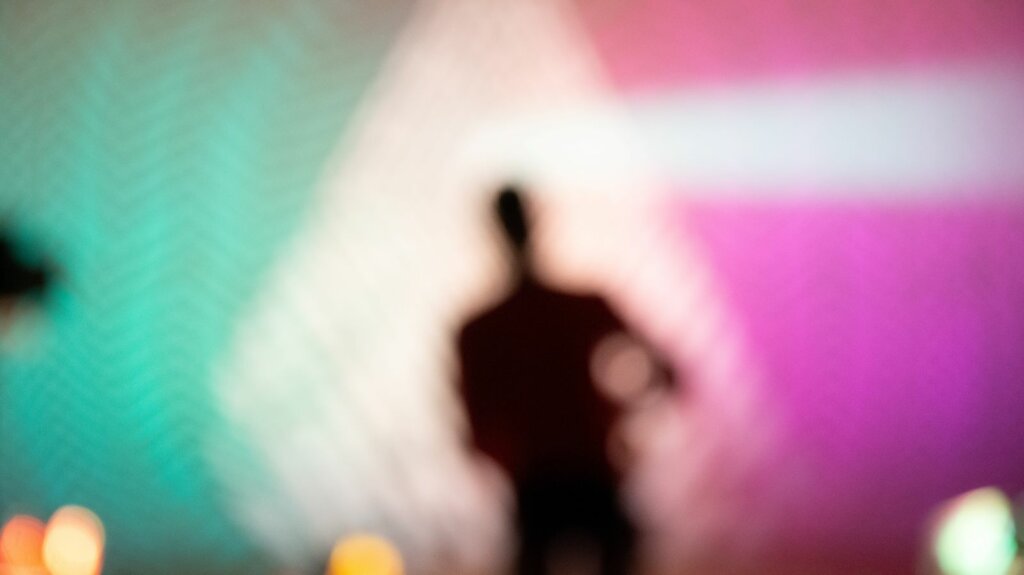
We all have a role to play in co-creation. Photo by Steven Weeks on Unsplash
Posted on my bathroom mirror is the question, “What does my higher power want to work through me? And what part of self needs to step aside in order for that to happen?” It’s a good question. When I’m looking over at so-and-so doing such-and-such, I’m not asking that question. Instead, I’m asking why I can’t be like that person. Doing so robs me and the universe of a gift that could otherwise come into being.
I know it’s cliché to say everyone is unique and special but … everyone is unique and special. There is something only you can birth as you’re participating in a co-creative process with the universe. A quick story for you from Elizabeth Gilbert’s Big Magic: Liz had an idea to write a novel about Brazil in the 1960s that she summarized as such: “It’s about this middle-aged spinster from Minnesota who’s been quietly in love with her married boss for many years. He gets involved in a harebrained business scheme down in the Amazon jungle. A bunch of money and a person go missing, and my character gets sent down there to solve things, at which point her quiet life is completely turned into chaos. Also, it’s a love story.”
Liz researched this story, even sold the idea to a publisher, but got sidetracked by life things. When she came back to the idea two years later, it didn’t have any juice anymore. She couldn’t write it. During this time, she met Ann Patchett and they developed a friendship. They exchanged long, handwritten letters and Ann casually mentioned she was writing a story about the Amazon jungle which could be summarized in exactly the same way as Liz’s.
The finer details of the novel were different but the idea was essentially the same. There’s a lot I could say about this story but the relevant part for this post is that coming from Ann, the story was slightly different — it was a contemporary story, not set in the 1960s. Ann’s was about the pharmaceutical industry and not the highway construction business. She put her spin on it in a way that Liz could not. She made it special because it came from her, not Liz.
There are a ton of similar ideas floating around in the ether but the way I make them concrete, the way you make them concrete, matters. Focusing on what someone else is doing misses the point. All of us are special and all of us have something of value to bring forth into the world. The more we recognize that, the better.
I dream of a world where we realize we’re in a co-creative dance with the universe. A world where we understand every person is bringing forth something that couldn’t have existed without them. A world where we realize there may be a million similar ideas that people are working on but the way we work on them matters. A world where we remember that all of us are special.
Another world is not only possible, it’s probable.
It’s the Jewish New Year, and I’m wondering what the new year will bring. Will some of my dreams come true? Or will this year be a nightmare? I want to know because I derive comfort when I know what’s ahead. But is that really true? When journaling about this topic I wrote, “You do better left in the dark.” Um, excuse me?
As I pondered it, I realized the statement is true. If I knew the future, I might not live it. There have been many instances in my life where if you told me what was before me, I would have laughed in your face and said, “Yeah, right,” or, “Nope. Not doing that.” If I knew what was in store ahead of time, it would feel too daunting. I only accomplish things when I do the next right action, and then the next, and then the next. When I have the full picture, I’m paralyzed.
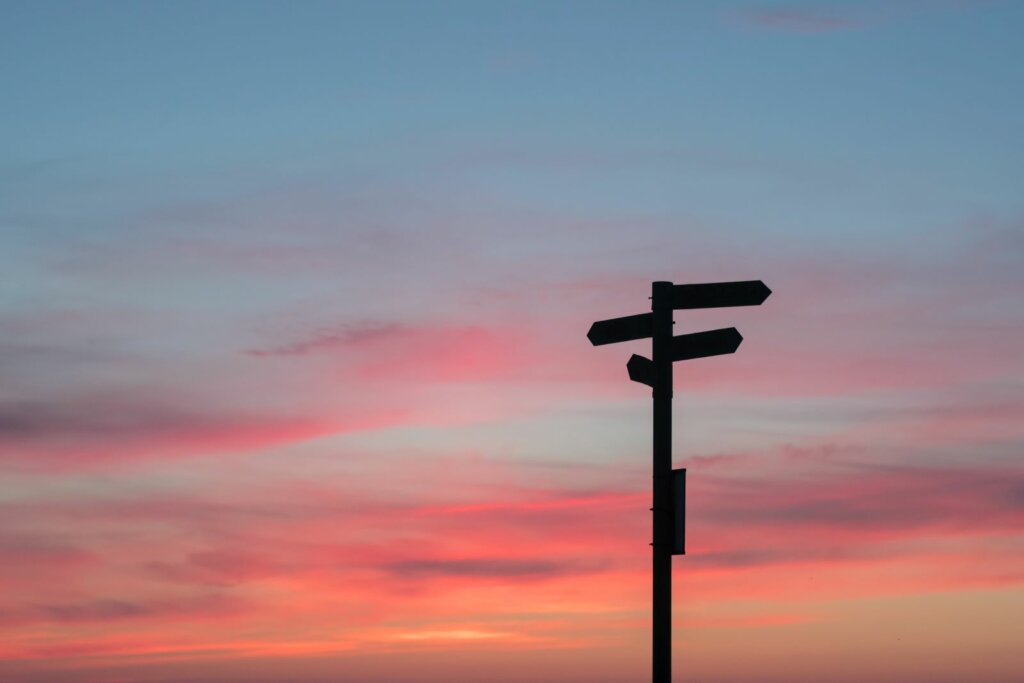
You don’t always needs to know in advance. Photo by Javier Allegue Barros on Unsplash
As if to underscore this point about only focusing on what’s next, I pulled a goddess card and the message was, “Allowing the self to evolve as you go and discovering new things today sets the path for destiny to unfold. The power of the present and how you respond to life’s potential is the potent fertile seed of the future. In order to claim the future, you must attend to the now.”
I’m claiming the future by living in the now. This tracks with what my spiritual teacher says about destiny: “The stars do not control you; your original actions control you. And where the original action is not known to you, but the result is known to you, the result is experienced by you, you say it is fate.”
In other words, for every action, even one from a previous life, there is a reaction, and that reaction is often called fate. My teacher also said we think things are predestined but “destiny cannot be the absolute factor, for if you do not exist, if you do not act, destiny cannot exist either.”
Destiny requires action and actions change our destiny. About 10 years ago when my life was completely chaotic and I kept moving all over creation, I consulted psychic after psychic because I wanted comfort. I wanted to know when the drama would end and where I’d settle down. Not one of them was able to accurately predict what would happen more than six weeks out.
One psychic told me I’d move to Vancouver but then I visited Vancouver and discovered, no, I didn’t want to live there. Another psychic told me I’d be married with two elementary-age children by the time I was 35. That didn’t happen either. I kept putting my faith in psychics only to be let down over and over again.
Instead of focusing on the future, I’m better off attending to the present. Living in the present, taking the next right action, I live into the future, which is constantly changing anyway! For this Jewish New Year, I’m affirming I do better left in the dark, that the future will take care of itself, and life can be surprising in a good way.
I dream of a world where we understand destiny isn’t set in stone. A world where we recognize our actions create our destiny. A world where we remember if we knew everything in advance, we’d likely become overwhelmed. A world where we remember sometimes, we’re better off left in the dark.
Another world is not only possible, it’s probable.
